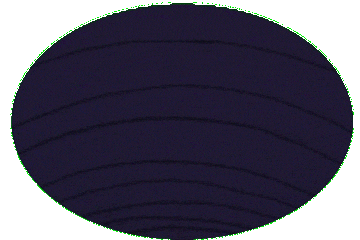Washington, D.C.
Washington, D.C., officially the District of Columbia and commonly known as simply Washington or D.C., is the capital city and federal district of the United States. The city is on the Potomac River across from Virginia and shares land borders with Maryland to its north and east. It was named after George Washington, a Founding Father and the first president of the United States. The district is named for Columbia, the female personification of the nation, through which human form and attributes are applied to the United States. The U.S. Constitution in 1789 called for the creation of a federal district under exclusive jurisdiction of the U.S. Congress. As such, Washington, D.C., is not part of any state, and is not one itself. The Residence Act, adopted on July 16, 1790, approved the creation of the capital district along the Potomac River, and is considered the city's founding date. In 1800, when the capital was moved from Philadelphia, the 6th Congress started meeting in the then-unfinished Capitol Building, and the second president, John Adams, moved into the newly finished White House. In 1801, the District of Columbia, formerly part of Maryland and Virginia and including the existing settlements of Georgetown and Alexandria, was officially made the federal district; initially, the city was a separate settlement within the larger district. In 1846, Congress reduced the size of the district when it returned the land that Virginia had ceded, including the city of Alexandria. In 1871, it made the entire district into a single municipality. There have been several failed efforts to reduce the district further and admit the rest as a state since the 1880s, including a statehood bill that passed the House of Representatives in 2021 but was not adopted by the U.S. Senate. Designed in 1791 by Pierre Charles L'Enfant, the city is split into quadrants that meet at the Capitol Building, with 131 neighborhoods overall. As of the 2020 census, the city's population was 689,545. During the workweek, commuters from the city's Maryland and Virginia suburbs increase the city's daytime population to more than one million. The Washington metropolitan area, which includes parts of Maryland, Virginia, and West Virginia, is the country's seventh-largest metropolitan area, with a 2023 population of 6.3 million residents. A locally elected mayor and 13-member council have governed the district since 1973, though Congress retains the power to overturn local laws. Washington, D.C., residents do not have voting representation in Congress, but elect a single non-voting congressional delegate to the U.S. House of Representatives. The city's voters choose three presidential electors in accordance with the Twenty-third Amendment, passed in 1961. Washington, D.C., anchors the southern end of the Northeast megalopolis. As the seat of the U.S. federal government, the city is an important world political capital. The city hosts buildings that house federal government headquarters, including the White House, U.S. Capitol, Supreme Court Building, and multiple federal departments and agencies. The city is home to many national monuments and museums, located most prominently on or around the National Mall, including the Jefferson Memorial, Lincoln Memorial, and Washington Monument. It hosts 177 foreign embassies and the global headquarters of the World Bank, International Monetary Fund, Organization of American States, and other international organizations. Home to many of the nation's largest industry associations, non-profit organizations, and think tanks, the city is known as a lobbying hub, which is centered on and around K Street. It is also among the country's top tourist destinations; in 2022, it had an estimated 20.7 million domestic and 1.2 million international visitors, the seventh-most among U.S. cities.
This article uses material from the Wikipedia article "Washington, D.C.", which is released under the Creative Commons Attribution-Share-Alike License 3.0.












